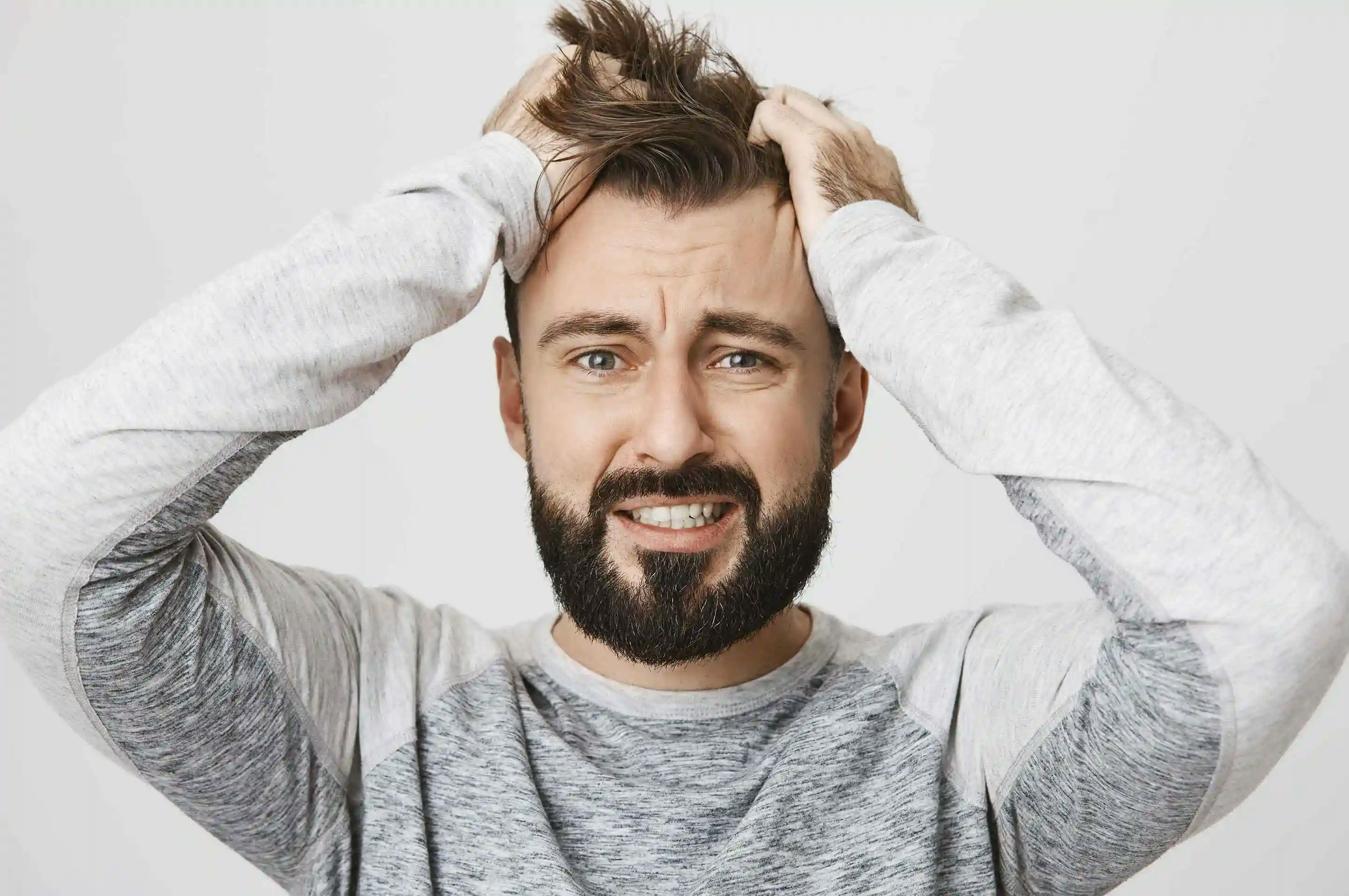
The relationship between testosterone and hair loss is complicated, to say the least. While high testosterone levels don’t necessarily guarantee that your hair will fall out, it can be among the reasons for hair loss. However, having low testosterone levels can also cause issues. But how exactly does testosterone cause hair loss in men and women? Testosterone is a male sex hormone. It is primarily produced by the testicles in males and the ovaries and adrenal glands in females.
Testosterone is responsible for the development of male sexual characteristics. These include the growth of facial and body hair, the deepening of the voice, and muscle development.
Two types of natural testosterone can be found in the body:
1. Free Testosterone
This is the testosterone that is not bound to any protein in the blood. It is the active form of testosterone that can enter cells and bind to androgen receptors.
2. DHT
DHT stands for dihydrotestosterone, which is a derivative of the hormone testosterone. Dihydrotestosterone is formed when testosterone is converted into its active form by the enzyme 5-alpha reductase. This enzyme is found in various tissues in the body, including the skin, prostate gland, and hair follicles. This hormone is a potent androgen, meaning that it has strong androgenic effects on the body. It is responsible for the development of male secondary sexual characteristics.
These include the growth of facial and body hair, the deepening of the voice, and the development of the male genitalia during fetal development. However, excessive levels of DHT have been implicated in various medical conditions, including male pattern baldness, prostate enlargement, and acne. Certain medications, such as finasteride, can act as DHT blockers and prevent the production of DHT.
Difference between having high testosterone vs. low testosterone hair loss
Hair loss and hair thinning can be caused by a variety of factors. Things such as genetics, aging, hormonal imbalances, and certain medical conditions can all play a role. Testosterone is one hormone that has been linked to hair loss. However, the relationship between testosterone and hair loss is complex and still not fully understood. High testosterone levels have been associated with hair loss in numerous studies. More specifically, high levels of dihydrotestosterone (DHT), a potent androgen derived from testosterone, have been linked to male hair loss or male androgenetic alopecia. This is the most common form of hair loss in men. DHT causes hair follicles to shrink, leading to thinner hair strands and subsequent hair loss. On the other hand, low testosterone levels may also contribute to hair loss. Testosterone plays a role in the growth and maintenance of hair follicles. Low levels of testosterone can lead to reduced hair growth and hair thinning. Although this can be easily treated with the help of testosterone replacement therapy. When it comes to hair loss caused by DHT, the situation is a little more complicated. To effectively treat male pattern hair growth and female pattern baldness it is important to understand the nuances between these two conditions. Visit a MAX hair clinic doctor to understand the remedies and possible treatments according to your stage of hair loss.



